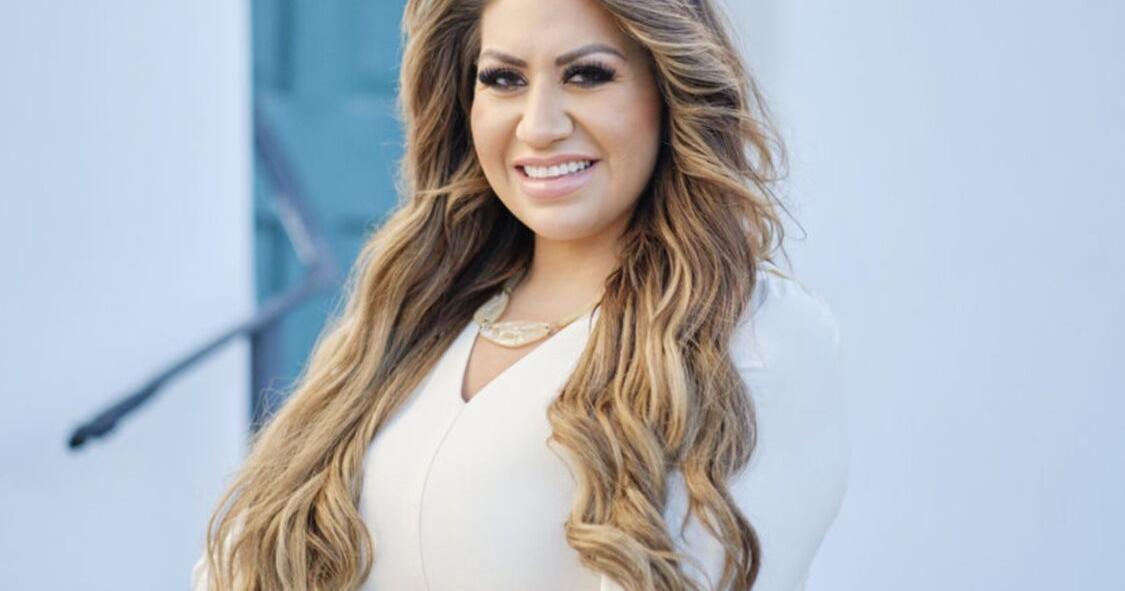
It is the time of the year when we are asked to look at our lives in retrospect and ask for forgiveness from those we have wronged. That’s why it is so important to me to discuss criminal justice reform and a fair chance with the Jewish community.
On Oct. 5, I’ll be honored as a trailblazer in criminal justice reform by Arouet Foundation, a Phoenix-based nonprofit that’s doing incredible work to empower and transform the lives of formerly incarcerated women. In preparation for that event, I’ve been reflecting on my own journey as the first Mexican American Jew elected to the Arizona Legislature — a journey that began when I was just 14 years old.
At Tucson’s Sunnyside High School in 2007, I was attacked by two adult students. During the attack, the school resource officer (SRO), who I expected to protect me, brutally assaulted me and lied about the incident. I was wrongfully arrested, kicked out of my high school and jailed for something I did not do. It changed my life overnight.
It was a tragic event that still serves as a microcosm of a larger issue: the ongoing failure of Arizona’s broken criminal justice system to help keep us all safe. The trauma I endured — from both the SRO and the juvenile detention center where I was jailed — extended far beyond the immediate arrest, lingering for over a year before I was able to prove my innocence. It disrupted my education and caused me serious trauma as a teenager.
Years later, I read a piece highlighting the Rebbe’s thoughts on incarceration and justice. That’s when I realized that the Torah teaches us that while every human being deserves fair and equal justice under the law, a person was created not to spend their time idly but to be productive.
Jewish law places a high premium on justice. However, we place ethics, compassion, forgiveness and the capacity to repent at the center because, as the Rebbe noted, most of those who are incarcerated will return to the community at some point, so we should treat them with dignity and respect.
Jails are not equipped to provide the specialized care and support that individuals in crisis desperately need, my own experience and thousands of others’ every year can attest.
Arrests like mine have long been unnecessarily punitive and terrifying experiences for children and adults alike in Arizona. We must not accept this as the status quo. My wrongful arrest has motivated me to advocate for meaningful change in our criminal justice system so that no child or their family experiences what I did.
In 2019, I worked to pass legislation mandating crisis intervention training for SROs. This was a vital step towards ensuring that those tasked with safeguarding our schools are equipped to handle mental health crises with compassion and empathy. Additionally, I’ve collaborated on proposals to end cash bail and no-knock warrants, striving to create a more just and equitable system for all Arizonans.
And earlier this year, I worked alongside State Sen. David Gowan to eliminate juvenile court fees, a significant milestone for justice reform that was signed into law by Governor Hobbs in May. These fees disproportionately burden those already struggling to overcome the barriers of a conviction history, and their elimination is a step towards leveling the playing field for thousands of young Arizonans seeking to rebuild their lives.
With the unwavering support of my family, I was able to overcome the trauma of my wrongful arrest and experience with the system. However, I know that countless others do not have access to a network of support like mine. That’s why I’m committed to working alongside a coalition of lawmakers and organizations across Arizona to create a more just and equitable system for us all.
Organizations like Arouet Foundation, whose work to support justice-impacted women and advocate for inclusive and equitable hiring practices aligns perfectly with the values I hold dear.
On October 5, Arouet hosts its Fair Chance Employment Symposium at the Arizona Biltmore, bringing together business leaders, policymakers and people with lived experience in the justice system from all over the state. “Fair Chance” practices are a holistic approach to re-entry that encourages the business community to not only tap into the talent of people with a conviction history but to support them by building access to mental health services, safe housing, transportation and peer mentoring.
Arouet has proved it’s a recipe for successful re-entry; their programming, in collaboration with businesses, mental health providers and peer mentors, has helped 93% of the formerly incarcerated women it’s served stay out of prison.
The time for change is now, and along with Arouet and other state and local leaders, we can build a criminal justice system that prioritizes compassion, rehabilitation and the well-being of all Arizonans. Just as we expect that it should. JN
Rep. Alma Hernandez, a Democrat, represents Legislative District 20 in Tucson. Reach her at ahernandez@azleg.gov.
This post was originally published on this site be sure to check out more of their content.






